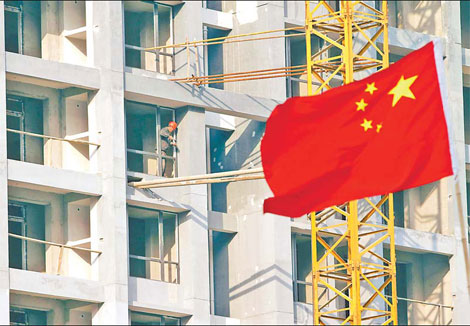Companies
Sany looks to overseas expansion for revenue
By Wang Ying (China Daily)
Updated: 2010-11-26 09:39
 |
Large Medium Small |
SHANGHAI - China's expansive spending on infrastructure projects has encouraged the domestic machinery producer Sany Heavy Industry Co Ltd to look for other countries experiencing a similar urbanization process, and try to increase its revenue from overseas activities to 50 percent.
"In the next two years, Sany plans to build plants in overseas markets of great potential, such as Indonesia, Russia, North African countries and South Africa," said Zhou Fugui, vice-president of Sany Heavy Industry Co Ltd and chairman of Shanghai Sany Science and Technology Co Ltd.
Like China, these emerging economies will invest a lot of capital in infrastructure construction, according to Zhou. "Sany will not miss these opportunities," he said.
According to Zhou, Sany will build plants and research and development centers in these areas to design and develop the most popular products in those regions.
"Our goal is to be an international company, and to achieve that, the company's international share should account for no less than 50 percent of total sales," said Zhou. Currently, Sany sales total 10 percent.
Of the 1,000 Sany's crawler cranes operating in the world, half of them are used in China, and while the domestic market is huge, Sany is planning greater overseas expansion. "Going abroad is a strategic step for Sany," Zhou said.
So far, the company's global development has been rapid and astonishing.
A research and development center and a manufacturing center, costing $60 million, recently became operational in India. A 40,000 square meter plant worth $60 million in the United States and a project worth 100 million euros ($138.8 million) in Germany are currently under construction.
In addition, Sany is planning a $200 million project in Brazil.
"By 2015, the 100 top Chinese machinery manufacturers will account for 85 percent of the industry's total revenue," said the head of the China Construction Machinery Association (CCMA) Su Zimeng, who spoke during the biannual International Trade Fair in Shanghai, which closes on Friday.
The fair is showcasing products from China's state-of-the-art industries such as construction machinery, building material machines, and construction vehicles and equipment.
"The world noted that one of Sany's machines was selected as a rescue facility during the trapped Chilean miners crisis," said Su.
Figures from the CCMA show that China surpassed the US and Japan to become the world's largest machinery manufacturing power in terms of revenue in 2009.
China turned out a total of 315.7 billion yuan ($47.5 billion) of revenue last year, an increase of 13.85 percent over 2008.
| |||||||
"In the last half-century, Komatsu's arch-rival was Caterpillar from the US. But I am afraid that opinion has to be altered," Kunio Noji, president and chief executive officer of Komatsu, was quoted as saying in the Nikkei financial newspaper in September.
"I kept a close watch on the fast-growing Sany from China, and the brand has entered the emerging markets of Brazil and India," he said.
"In 10 years, Komatsu's arch-rival might be Chinese manufacturers including Sany," Noji added.
Being the nation's largest machinery-making listed company, Sany has a total market capitalization of 132.6 billion yuan, with a Shanghai capitalization of 111.4 billion yuan and HK$25.44 billion ($3.28 billion) in Hong Kong, according to Thursday's share prices.




